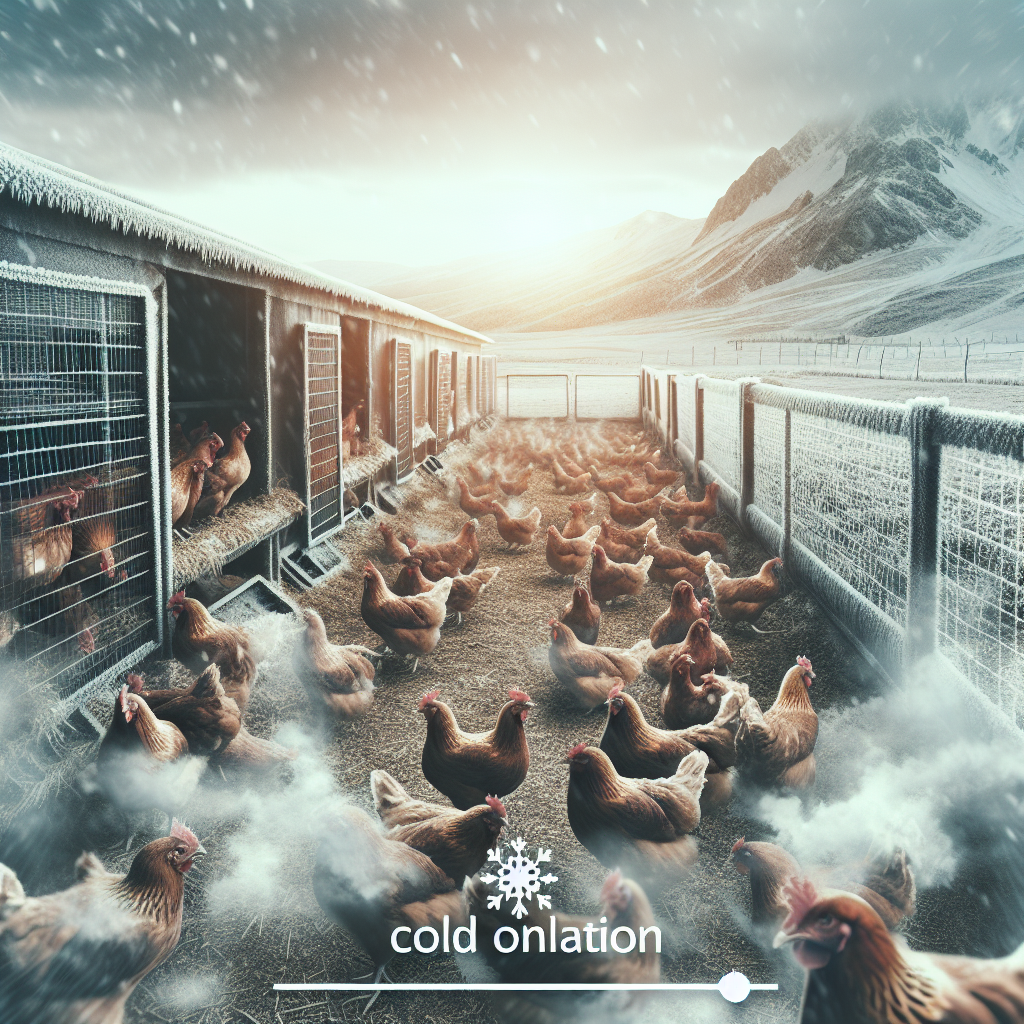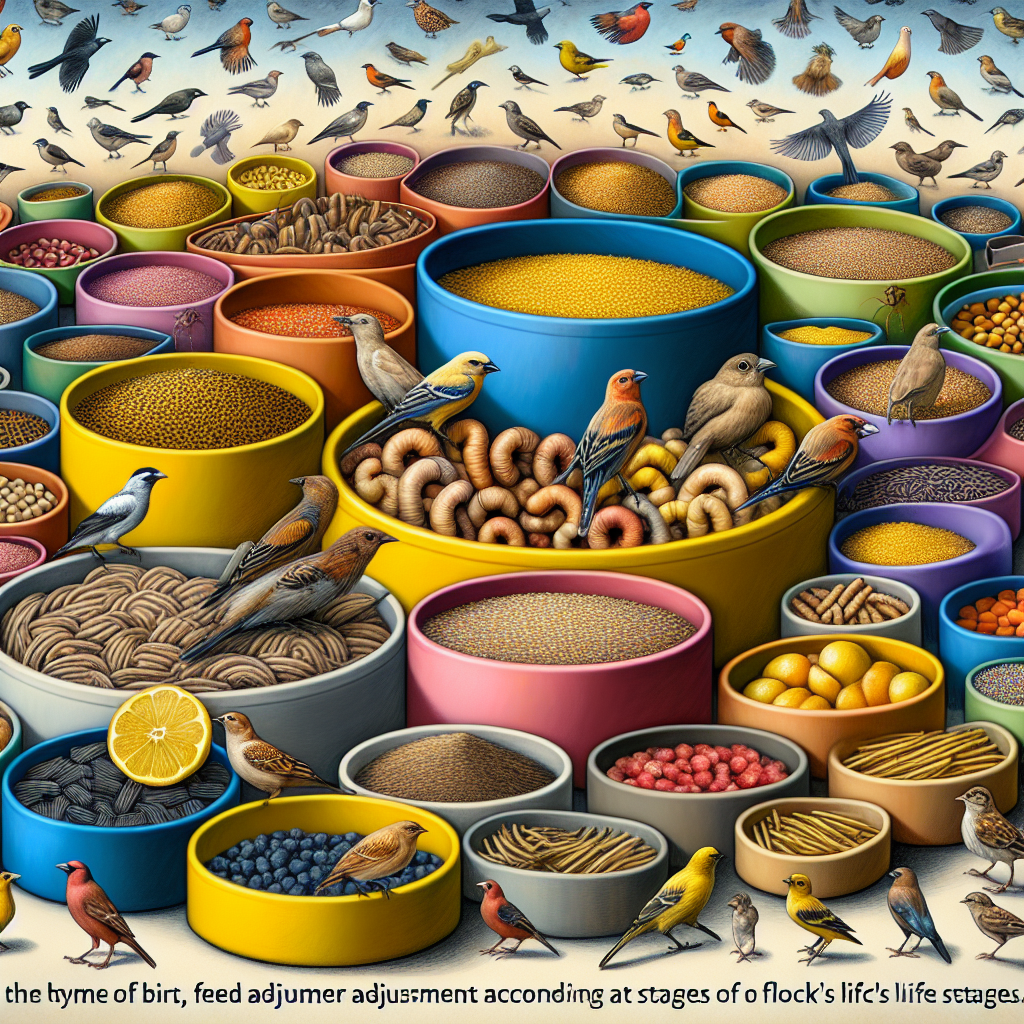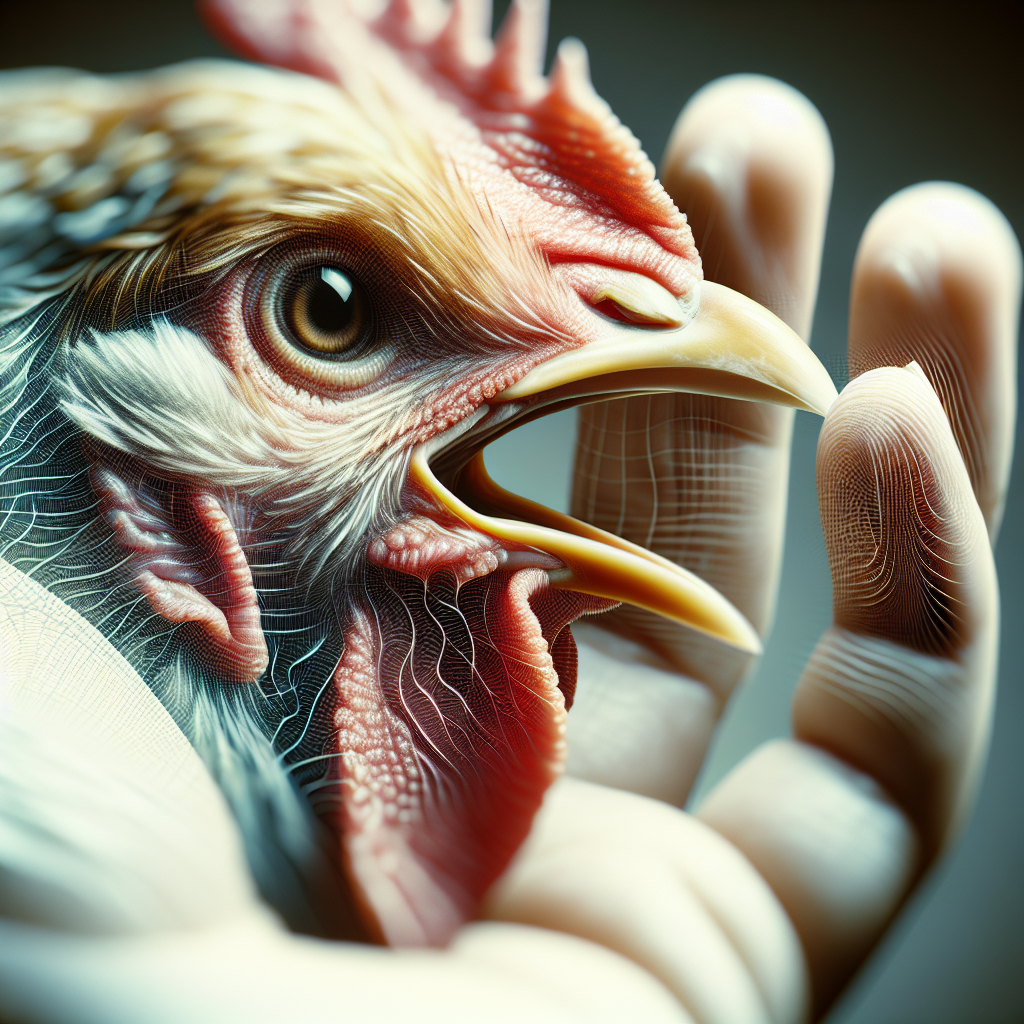Have you ever wondered if there are special feed formulations tailored to meet the nutritional needs of chickens living in colder climates? Well, you’re in luck! In this article, we will explore whether such specialized feed exists and how it can help our feathered friends thrive in chilly environments. So, grab a cup of hot cocoa, get cozy, and let’s delve into the fascinating world of chicken nutrition in colder climates!
Factors to Consider in Cold Climate Feed Formulations
Cold climate conditions can have a significant impact on the nutritional requirements and overall health of chickens. As a poultry farmer in a cold climate region, it is crucial to understand the various factors that influence the feed formulations for your chickens. By taking these factors into consideration, you can optimize your feed to meet the specific needs of your chickens and ensure their well-being throughout the winter months.
Nutritional Requirements of Chickens
To formulate appropriate feed for chickens in colder climates, it is essential to understand their nutritional requirements. Chickens require a balanced diet that provides them with energy, protein, vitamins, minerals, and other essential nutrients. These requirements may vary depending on the age, breed, and production stage of the chickens. Therefore, it is important to adjust the feed formulations accordingly to meet these specific needs.
Effect of Temperature on Feed Intake
Temperature has a direct impact on the feed intake of chickens. In colder climates, chickens tend to reduce their feed consumption due to decreased metabolic rate and energy expenditure to maintain body temperature. As a result, their nutrient intake can be compromised, leading to reduced growth, weakened immune system, and overall poor health. Understanding this decrease in feed intake is crucial when formulating feeds for chickens in cold climates.
Impact of Cold Stress on Chickens
Cold stress is a common issue faced by chickens in colder climates. Exposure to low temperatures can result in stress, which negatively affects their overall well-being and productivity. Cold stress can lead to reduced feed intake, decreased weight gain, suppressed immune function, and increased susceptibility to diseases. Formulating feeds that address the challenges of cold stress is essential to support the health and performance of chickens in cold climates.
Considerations for Cold Climate Feed Formulations
When formulating feed for chickens in colder climates, it is important to consider various factors to ensure optimal nutrition and support their well-being. These considerations include adjustments for nutritional requirements, energy-dense feed ingredients, optimizing protein content, antioxidants and immune system support, feeding strategies for cold weather, feed additives for cold climates, and specific feeding requirements for different poultry production stages.
Adjustments for Nutritional Requirements
To meet the nutritional needs of chickens in colder climates, adjustments in their dietary requirements are necessary. This involves ensuring adequate energy, protein, vitamins, and minerals intake to sustain their health and productivity.
Energy Requirements
The energy requirements of chickens increase in colder climates to compensate for the additional energy needed to maintain body temperature. This can be achieved by incorporating energy-dense feed ingredients and adjusting the overall energy content of the feed formulation.
Protein Requirements
Protein is an essential nutrient for chickens, as it plays a vital role in growth, development, and immune function. In cold climates, protein requirements may increase due to the increased energy expenditure required for thermoregulation. Therefore, it is important to adjust the protein content in feed formulations to meet the elevated requirements of chickens during cold weather.
Vitamin and Mineral Requirements
Chickens require a balanced supply of vitamins and minerals for optimal health and performance. In colder climates, certain vitamins and minerals, such as vitamin E and selenium, may need to be increased to support the chicken’s immune system and protect against oxidative stress. Adjusting the levels of these micronutrients in feed formulations can help ensure the chickens receive adequate nutritional support in cold weather.
Energy-Dense Feed Ingredients
Incorporating energy-dense feed ingredients into the feed formulation for chickens in colder climates is crucial to meet their increased energy requirements. These ingredients can provide the necessary calories to help chickens maintain body temperature and sustain their growth and production.
Increasing Energy Content in Feed
To increase the energy content in chicken feed, ingredients such as corn, wheat, barley, and other cereal grains can be utilized. These grains are rich in carbohydrates and provide a readily available source of energy for chickens. By increasing the inclusion of these ingredients in the feed formula, the energy density can be enhanced, allowing the chickens to meet their increased energy demands in cold climates.
Sources of Fat and Oil
Including fat and oil sources in the feed formulation can also help boost the energy content. Fats and oils are highly concentrated sources of energy, providing chickens with additional calories. Common sources of fat and oil include vegetable oils, animal fats, and by-products from the food industry. These ingredients not only increase energy density but can also enhance palatability and improve overall feed efficiency.
Utilizing Cereal Grains
Cereal grains, such as corn, wheat, and barley, are staple ingredients in chicken feed formulations. In colder climates, the inclusion of these grains becomes even more important due to their energy-dense nature. These grains also provide a good balance of essential nutrients, including carbohydrates, proteins, and certain vitamins and minerals. By utilizing cereal grains effectively, poultry farmers can optimize the energy content of the feed and provide a reliable energy source for chickens in cold climates.
Optimizing Protein Content
Protein is a crucial component of chicken’s diet, as it is essential for growth, muscle development, and overall health. Optimizing the protein content in feed formulations for chickens in colder climates is important to support their nutritional requirements and ensure their well-being.
Essential Amino Acids
Chickens require not only a certain amount of protein but also specific amino acids essential for their growth and metabolic functions. In cold climates, the demand for these essential amino acids may increase due to the stress and energy requirements associated with thermoregulation. Formulating feeds that provide an appropriate balance of essential amino acids, such as methionine, lysine, and threonine, is crucial to support the protein needs of chickens in cold weather.
Alternative Protein Sources
In addition to traditional protein sources like soybean meal and fish meal, alternative protein sources can be used to optimize the protein content in feed formulations for poultry in cold climates. These alternative sources may include plant protein concentrates, such as pea protein or rapeseed protein, or even insect-based protein. By diversifying the protein sources, not only can the nutritional value of the feed be improved, but it can also help reduce the environmental impact associated with intensive poultry farming.
Antioxidants and Immune System Support
Supporting the immune system of chickens in cold climates is crucial to ensure their health and productivity. Antioxidants and other immune system-supporting nutrients play a vital role in protecting chickens from oxidative stress and disease challenges.
Vitamin E and Selenium
Vitamin E and selenium are both potent antioxidants that help protect cells from oxidative damage. In cold climates, chickens may experience increased oxidative stress due to the energy demands associated with thermoregulation. Including adequate levels of vitamin E and selenium in feed formulations can help strengthen the chicken’s immune system and protect against the negative effects of cold stress.
Omega-3 Fatty Acids
Omega-3 fatty acids are known for their anti-inflammatory properties and immune system benefits. Including sources of omega-3 fatty acids, such as fish oil, flaxseed, or algae, in chicken feed can enhance their immune response and help mitigate the negative effects of cold stress. These fatty acids not only boost the overall health of the chickens but also improve the quality of their products, such as eggs or meat.
Probiotics and Prebiotics
Probiotics and prebiotics play a crucial role in supporting gut health, which is closely linked to immune function. In colder climates, chickens may experience gut disturbances due to the challenges of cold stress. Including probiotics, which are beneficial microorganisms, and prebiotics, which are the food source for these microorganisms, in feed formulations can help maintain a healthy gut microbiota and promote the overall health and immunity of chickens.
Feeding Strategies for Cold Weather
Implementing appropriate feeding strategies is essential to support the nutritional needs of chickens in cold weather. These strategies can help improve feed quality, decrease feed waste, and encourage optimal feed intake.
Improving Feed Quality
Ensuring high-quality feed is crucial for chickens in cold climates. Feed should be free from mold, toxins, and contaminants that can negatively affect the health and performance of chickens. Regularly monitoring and maintaining feed quality through proper storage practices and routine analysis can help prevent nutritional deficiencies or health issues associated with poor feed quality.
Decreasing Feed Waste
In cold weather, chickens tend to reduce their feed intake, leading to potential feed waste. Minimizing feed waste is essential to ensure that the chickens receive the necessary nutrients. Feeding strategies such as feeding smaller portions more frequently, providing feeders that minimize spillage, and utilizing feed additives that enhance feed palatability can help reduce feed waste and maximize nutrient utilization.
Encouraging Feed Consumption
In cold climates, chickens may exhibit reduced appetite, resulting in inadequate nutrient intake. Encouraging feed consumption can help mitigate this issue. Using methods such as adding flavor enhancers, providing a warm feeding environment, using feeding strategies that stimulate natural foraging behaviors, and ensuring easy access to clean and fresh water can all help promote feed intake and ensure adequate nutrition during cold weather.
Feed Additives for Cold Climates
Feed additives can play a significant role in supporting the health and performance of chickens in cold climates. These additives can help enhance performance, improve thermoregulation, and maintain gut health.
Performance Enhancers
Certain feed additives, such as growth promoters or feed efficiency enhancers, can help optimize the performance of chickens in cold climates. These additives may include enzymes, organic acids, or probiotics that improve digestibility and nutrient utilization. By maximizing the efficiency of nutrient absorption, chickens can obtain the necessary energy and nutrients despite reduced feed intake.
Thermoregulatory Supplements
To support chickens in cold weather, thermoregulatory supplements can be added to feed formulations. These supplements may include herbal extracts, essential oils, or natural substances that help regulate body temperature and improve cold tolerance in chickens. By providing these supplements, poultry farmers can help minimize the negative impact of cold stress and improve the overall well-being of their chickens.
Gut Health Enhancers
Maintaining a healthy gut is vital for chickens in cold climates, as gut health directly correlates with overall health and disease resistance. Including feed additives that support gut health, such as probiotics, prebiotics, or organic acids, can help maintain a balanced gut microbiota and improve immune function. These additives also aid in the digestion and absorption of essential nutrients, ensuring the chickens receive optimal nutrition despite the challenges posed by cold stress.
Feeding for Cold Weather Poultry Production
Different poultry production stages may require specific considerations when formulating feeds for cold weather. Understanding the unique needs of broiler chickens, layer hens, and breeding/hatchery operations can help tailor the feed formulations to match their requirements.
Broiler Chickens
Broiler chickens have a fast growth rate and high metabolic demands. Therefore, providing a nutritionally balanced feed with increased energy and protein content is crucial. Adjusting feed formulations to include energy-dense ingredients, optimizing protein content, and incorporating performance enhancers can help support the growth and performance of broiler chickens in cold climates.
Layer Hens
Layer hens require nutrients that support egg production and shell quality. In cold weather, egg production may be negatively affected. It is important to adjust feed formulations to provide the necessary nutrients, including calcium and vitamins, to support egg production and maintain healthy shell quality. Additionally, including additives that promote gut health, such as probiotics or prebiotics, can help improve feed utilization and support the overall well-being of layer hens.
Breeding and Hatchery
The breeding and hatchery stage is crucial for the future productivity of the flock. Providing optimal nutrition during this stage is essential to ensure healthy offspring. Adjusting feed formulations to support reproductive performance, such as including supplements that enhance fertility and embryo development, can help maximize the breeding potential of the flock. It is also important to consider the specific requirements of breeders and provide the necessary nutrients, vitamins, and minerals to support their overall health and productivity during cold weather.
Evaluating Feed Performance
Monitoring the performance of the feed is essential to ensure it meets the specific nutritional needs of chickens in cold climates. Evaluating feed performance involves various measurements and assessments to determine the effectiveness of the feed formulation and feeding strategies.
Monitoring Growth and Weight Gain
Regularly monitoring the growth and weight gain of the chickens can provide insight into the effectiveness of the feed formulation. Monitoring growth rates, body condition scores, and comparing the performance of chickens in different groups can help identify any nutritional deficiencies or issues that need to be addressed. Adjusting feed formulations based on growth performance can help ensure optimal nutrition and support the overall health of the chickens.
Measuring Feed Conversion Efficiency
Feed conversion efficiency is an important factor in evaluating feed performance. Monitoring the amount of feed consumed in relation to body weight gain can help determine the efficiency of nutrient utilization. Maximizing feed conversion efficiency is crucial in cold climates, where feed intake may be reduced. By evaluating feed conversion rates, adjustments can be made to the feed formulation to optimize nutrient utilization and minimize feed waste.
Condition Scoring Chickens
Condition scoring is a visual assessment of the physical condition of the chickens, including body weight, muscle development, feather quality, and overall appearance. This assessment can help identify any signs of poor nutrition or health issues. Regularly condition scoring the chickens can provide valuable feedback on the performance of the feed formulation and allow for adjustments to be made to better meet the chickens’ nutritional needs in cold climates.
Conclusion
Formulating feed for chickens in colder climates requires careful consideration of various factors, including nutritional requirements, energy density, protein optimization, immune system support, feeding strategies, and feed additives. By addressing these factors, poultry farmers can ensure that their chickens receive the necessary nutrients to thrive in cold weather and maintain optimal health and productivity. Monitoring feed performance and evaluating the chickens’ growth and condition allows for adjustments to be made to the feed formulation, ensuring continuous improvements and support for chickens in cold climates. With a well-formulated feed, poultry farmers can overcome the challenges of cold weather and provide their chickens with the nutrition they need to flourish.




